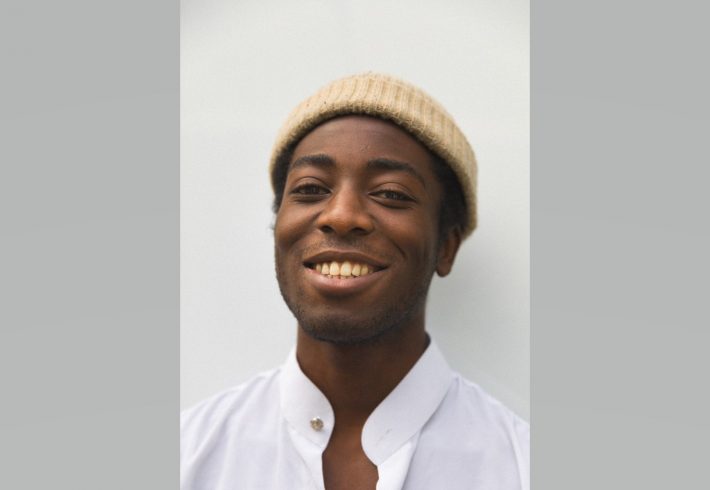As a Black zoologist, a BAME network matters
Reuben Fakoya Brooks speaks powerfully from personal experience about the importance of Black representation in ecology, and introduces a new BAME network to support People of Colour in ecology.

“Why do you think there are so few black students in Ecology?”
It’s a question I am often asked and one I continually ask myself.
As someone of Black British heritage, I have become accustomed to being the minority. My path through school, higher education and now ecology has been, in some respects, a testament to the journey many People of Colour experience.
Like many, I have accepted the preconceived norms, prejudices, marginalisation and social scrutiny of being the only one, or one of a few representatives, of an ethnic group in both a professional and social setting. But sometimes it takes something extraordinary in order to take a step back. To stop and stare at a perceived ‘normal’ which inherently is actually quite abnormal.
The recent Black Lives Matter movement has seen a newfound awareness of an accepted normalcy that should be questioned, probed and prodded. The question “Why do you think there are so few black students in Ecology?” should instead be reframed as “Why is the system causing there to be so few black students in Ecology?” For me, founding the new BAME Ecologist Network provides one response to this for those in the UK.
The societal image of a zoologist
Zoology and the ecology of natural systems, and all their fauna and flora, has fascinated me since my first ‘wide-eyed’ sighting of a blue whale’s tail flukes during the (original!) Blue Planet series narrated by Sir David Attenborough. As a result, my decision to study zoology at university was unsurprising to both my friends and family. However, for others, it was and still remains a shock.
As someone of Black British heritage, I have become accustomed to being the minority
Why is this? My physical description (above-average height, black, an athletic build and the occasional wearer of glasses) is a portrayal that you, yourself, would be lying if you said it best fits the image of a zoologist. The reality is the perception of a zoologist, and the subject of ecology as a whole, is of an upper/middle class white male.
A product of history, the image of ecology and ecologists contributes to the reaction of disbelief that a person like me would consider a career in ecology. This never-ending cyclical problem suggests an answer, but not a solution, to the previous question of: “Why is the system causing there to be so few black students in ecology?” So what could be the solution?
Pioneers and representation
Uniquely human, ‘pioneers’ are individuals that take the first step in a direction unknown to their predecessors, inadvertently helping to combat prior norms and pre-expected limits. A successful ‘pioneer’ provides an example for others to follow, mould and further adapt.
The BAME Ecologist Network will provide a hub of support that we will design ourselves
In terms of the field of ecology, the importance of creating programmes that encourage the mentorship, support and retention of ‘pioneers’, in turn, will help create a network. This will help break down pre-existing prejudices and stereotypes and project voices and encourage others to pursue a similar career path.
The BAME Ecologist Network and the future
The BAME Ecologist Network will serve as a community for these ecological ‘pioneers’ in the UK, providing an academic hub of support that we will design ourselves.
The network will act as a community of expertise, which as a by-product, will inspire (prospective) students but also act as a voice of representation helping to create an incentive for young people to enrol or continue in the sector.
For me, the recent Black Lives Matter movement is not an affirmation of something new, but instead a sigh of relief (frustration?) at the acknowledgement of a disadvantage I had come to normalise. However, like many, I still remain slightly worried the OVERWHELMING response is performative and that long-lasting change sadly may not be implemented.
Ultimately, the need for proactive decisions is essential and the British Ecological Society’s support in the creation of the BAME Ecologist Network is the first of many steps in a better direction. In this, I still and will remain hopeful.
Join the BAME Ecologist Network
To join Reuben, help shape this new network and contribute to what those first steps in a better direction should be, please get in touch.
Everyone is welcome who identifies as Black British, British Pakistani, British Bangladeshi, British Indian and others who self-identify as a BAME ecologist or scientist. We also welcome any international ecologists studying and working in the UK who feel their career progression is being negatively impacted by systemic racism.
Email Karen at the British Ecological Society initially to express your interest. The first online meeting of the group will be in early October.
Reuben Fakoya-Brooks
Reuben was a Zoology student at the University of Nottingham. Originally specialising in evolutionary ecology, his current research is developing methods to eliminate stigma related to mild-to-moderate forms of perinatal mental illness in both mothers and fathers across the 2Seas area (France, Belgium, UK, Netherlands). In addition, he is contributing to COVID-19 related hypotheses with academics and clinicians, which has recently involved integrating evolutionary theory into a clinical setting. Besides academia, Reuben is a successful professional photographer, working in the world of fashion and documentary photography. His most recent project, centred on life on the road in West Africa, has been published in an online magazine and displayed in a gallery in London.
Like what we stand for?
Support our mission and help develop the next generation of ecologists by donating to the British Ecological Society.